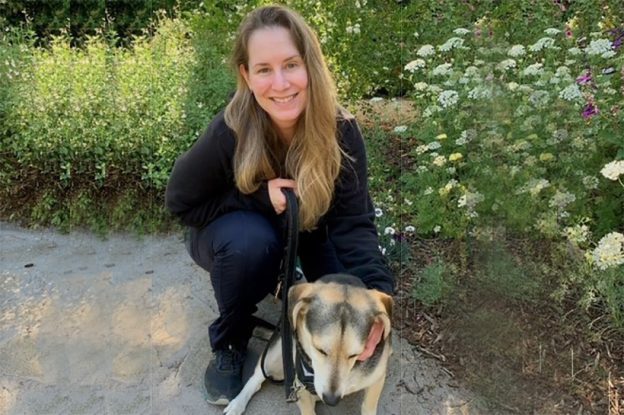
5 questions for … Dr. Erin Hahn
Erin E. Hahn, PHD, MPH, is a health services researcher and implementation scientist. Her primary research interests are quality of care in oncology and the implementation of evidence-informed practices. She is particularly interested in the care of cancer survivors after their initial cancer treatment. Dr. Hahn joined the Department of Research & Evaluation as the first AcademyHealth Delivery System and Implementation Science post-doctoral research fellow in 2013. She was appointed research scientist I in 2014, and this month was promoted to research scientist II. She is also an associate professor in the Department of Health Systems Science of the Kaiser Permanente Bernard J. Tyson School of Medicine.
You obviously have had a lot of success in your career at the Department of Research & Evaluation. What sparked your passion and drive?
A: I’ve always been interested in health and health care. I started my early career in health care operations, where I saw how strongly research affected day-to-day clinical care, administration, and policy decisions. I wanted to be a part of a research-clinical-operational team where improving patient outcomes using high-quality evidence is part of the consistent, clear mission and vision. That’s why I am so proud to be a part of Kaiser Permanente.
One of your studies, funded by the National Cancer Institute, examines a new model for cancer survivorship care that incorporates primary care physicians. Can you tell us about that research, and if you had to approach it differently due to the pandemic?
A: We have a “good problem” to address: Our exemplary cancer screening, treatment, and follow-up programs have led to a growing population of early-stage breast and colorectal cancer patients. Historically, these low-risk patients have been followed in medical oncology for 5 to 10 years after their treatment. However, as this population grows and our cancer therapeutics become more complex, our medical oncologists are overloaded—and this is a national issue in oncology. Randomized controlled trials in England, Canada, and Australia have shown that PCPs (primary care physicians) can provide excellent cancer survivorship care for early-stage survivors. This is with no difference in time to detection of recurrence, mortality, adverse events, or patient-reported quality of life compared to survivorship care with an oncologist. For this study, we are providing extensive survivorship training to a small group of PCPs to evaluate a new model of care. Early-stage, low-risk survivors will be transitioned to these survivorship-specialist PCPs approximately one year after treatment. We will evaluate quality of cancer surveillance, preventive care, patient experience, and non-planned care (e.g., hospitalizations, emergency care). We are uniquely positioned at Kaiser Permanente to develop and test these novel models of care.
You also received funding from the National Cancer Institute to investigate patterns of health care utilization among adolescent and young adult cancer survivors. What can you tell us about your discoveries there?
A: We are in the early stages of this study, which brings together a fantastic team of researchers and clinicians from Kaiser Permanente, Huntsman Cancer Institute, the University of North Carolina, the Mayo Clinic, and the University of California to learn more about this unique population. We know from our prior work that adolescents and young adults who have had cancer do not always get the post-treatment care they need and are at risk for many long-term effects of their disease and treatment. We are hoping to learn more about patterns of care and patient perceptions and needs in order to design interventions to improve their health and care experience.
You co-authored a study on the impact of COVID-19 on cervical cancer screening rates among women that was published earlier this year in MMWR. The study received a lot of media attention. Can you tell us about that research and how it may impact clinician care?
A: This study documented the decrease in cervical cancer screening during the initial months of the pandemic through fall 2020, compared to a similar time period in the previous year. This type of study helps us quantify the impact of the pandemic stay-at-home orders on the health of our members. This work also can help operational leaders focus on reaching out to members who are overdue for screening and examine if certain groups might need enhanced outreach (e.g., by age, race/ethnicity).
When you are not at work, how do you enjoy spending your free time?
A: I love spending time with my dogs Boo and Dosha, being in my garden, reading, and going for long walks in my neighborhood. It’s been lovely to get to know my neighbors better during the past year!
Image: Dr. Erin Hahn loves spending time with her dogs, including this one named Boo.





